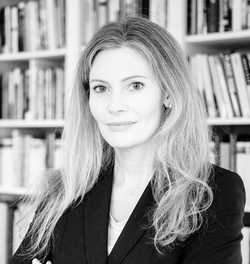
Above: Bio-stock
Alexraths/iStock
Biological Weapons
This learning unit addresses the challenges to prevent acts of biowarfare and bioterrorism in an era of rapid advances and diffusion of sensitive biotechnologies.
Start learning unitChapters
Learning Objectives
Learning objectives
The Ebola crisis in West Africa (2014–2016) and especially the Corona pandemic in the early 2020s reminded us of the challenge to contain and manage pandemic diseases in a globalised and interconnected world. Although the Ebola outbreak was a naturally occurring epidemic, terrorist organisations or states could create ‘man-made’ pandemics in the form of biological weapons (BW) in the future.
This learning unit addresses the challenges to prevent acts of biowarfare and bioterrorism in an era of rapid advances and diffusion of sensitive biotechnologies.
After completing this learning unit, you will:
- understand the technical foundations of BW
- have an overview of historical BW programmes
- comprehend the nature of bioterrorism
- be familiar with the political context of biological weapons
- have better knowledge of the international legal framework aimed at prohibiting the possession and use of BW
Credits
Disclosures
Content Warning
This learning unit may contain audio-visual material or texts, which may not be suitable for all audiences.
Funding
This Learning Unit was produced with financial assistance from the European Union. The contents of this Learning Unit are however the sole responsibility of the author(s) and should under no circumstances be regarded as reflecting the position of the European Union.
External Links
The site may contain hyperlink text references (’Links’) to other sites that are offered by third parties. These Links are made available solely for the purpose of information and as an additional service for users. Only the respective operator is responsible for all content and statements on linked Internet sites. Therefore, PRIF cannot guarantee the correctness and accuracy or any other aspect of third party sites.
Preferred Citation
Filippa Lentzos, "Biological Weapons" in EUNPDC eLearning, ed. Niklas Schörnig, Peace Research Institute Frankfurt. Available at https://eunpdc-elearning.netlify.app/lu-03/, last modified 9 July 2025
Editorial Note
This is a beta version of the learning unit, which is regularly optimised. Please report any factual errors or discrepancies to the publisher. (support(at)nonproliferation-elearning.eu). Please note that although the original text was written by the authors, the video production and simplifications were carried out by PRIF.
